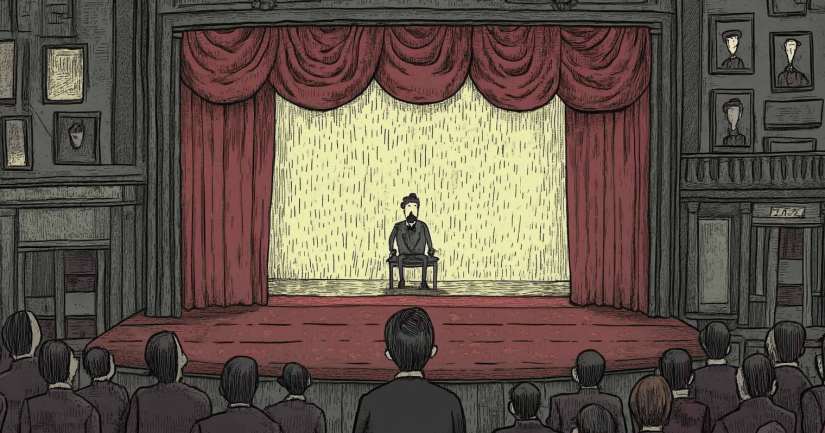
The Much Ado About Nothing Vocabulary Quiz offers an insightful exploration into the rich and varied language employed by William Shakespeare in his renowned play. By delving into the specific terms and expressions used throughout the text, readers can gain a deeper appreciation for the linguistic artistry that characterizes the narrative.
In “Much Ado About Nothing,” Shakespeare masterfully weaves a tapestry of words that not only convey the plot but also reflect the social dynamics and character development within the play. The Much Ado About Nothing Vocabulary Quiz encourages readers to analyze these linguistic choices, fostering a comprehensive understanding of how vocabulary enhances the thematic depth and emotional resonance of the story.
Mastering Shakespearean vocabulary is impressive now see if you can spot false facts with Much Ado About Nothing True Or False Quiz! Want to challenge yourself with famous quotes? Try Much Ado About Nothing Quote Identification Quiz. And when you’re ready for the big test, see how well you know the entire play with Much Ado About Nothing Full Book Quiz!
Furthermore, this quiz prompts readers to consider the broader implications of Shakespeare’s language, prompting discussions on how specific terms reflect the cultural and historical context of the Elizabethan era. Engaging with the Much Ado About Nothing Vocabulary Quiz not only tests one’s knowledge but also deepens one’s connection to the timeless themes presented in the play.
Archaic Terms and Their Modern Equivalents
Shakespeare’s use of archaic language presents both a challenge and an opportunity for modern readers. Terms such as “betwixt,” “ere,” and “thither” may seem unfamiliar, yet they offer a glimpse into the linguistic norms of the 16th century. Understanding these terms is crucial for grasping the nuances of character interactions and the subtleties of the plot.
For instance, the word “ere” meaning “before” is frequently used to denote time sequences, while “thither” indicates directionality, akin to “there.” By familiarizing oneself with these terms, readers can more accurately interpret the characters’ intentions and the progression of events within the play.
Character-Specific Vocabulary
Each character in “Much Ado About Nothing” employs language that reflects their personality and social standing. Beatrice’s sharp wit and Benedick’s playful banter are characterized by clever wordplay and puns, showcasing their intellectual prowess and mutual attraction. Conversely, Dogberry’s malapropisms such as confusing “comprehend” with “apprehend” provide comic relief and highlight his lower social status.
Analyzing the specific vocabulary choices of each character allows readers to gain insight into their motivations and relationships. This understanding enriches the reading experience and fosters a deeper connection to the narrative.
Thematic Vocabulary and Symbolism
Shakespeare’s deliberate use of certain terms reinforces the central themes of the play. Words like “honor,” “virtue,” and “deception” are not only pivotal to the plot but also serve to underscore the societal values and conflicts of the time. For example, the repeated emphasis on “honor” reflects the importance placed on reputation and social standing in Elizabethan society.
Additionally, the use of symbolic language such as references to masks and masquerades highlights the theme of appearance versus reality. By examining these thematic vocabulary choices, readers can uncover deeper layers of meaning within the text.
Conclusion: Embracing Shakespeare’s Language
The Much Ado About Nothing Vocabulary Quiz serves as a valuable tool for readers to engage deeply with the linguistic intricacies of the play. By analyzing archaic terms, character-specific language, and thematic vocabulary, readers can enhance their comprehension and appreciation of Shakespeare’s work.
Engaging with the vocabulary of “Much Ado About Nothing” not only enriches one’s understanding of the play but also offers a window into the cultural and historical context of the Elizabethan era. The quiz encourages readers to delve into the language, fostering a deeper connection to the timeless themes and enduring relevance of Shakespeare’s masterpiece. Much Ado About Nothing Quizzes: Love, deception, and wordplay …
Much Ado About Nothing Vocabulary – FAQ
In the title Much Ado About Nothing, the word ado refers to fuss, commotion, or trouble. It suggests that the events and misunderstandings in the play, while dramatic, are ultimately about trivial matters.
The term noting is significant because it plays on the word nothing, which was pronounced similarly in Shakespeare’s time. Noting refers to observing, eavesdropping, or taking notice, which are central themes in the play, as characters misinterpret and misunderstand what they see and hear.
In Elizabethan culture, a cuckold referred to a man whose wife was unfaithful, often depicted with horns on his head. In Much Ado About Nothing, the fear of being cuckolded drives much of the plot, particularly in the accusations against Hero and the banter between Benedick and Beatrice.
The phrase merry war describes the witty and spirited verbal sparring between Benedick and Beatrice. It captures the playful yet contentious nature of their interactions, which are marked by affection and rivalry, ultimately leading to their romantic union.
Gulling refers to tricking or deceiving someone, often in a humorous way. In the play, several characters are gulled or tricked into believing falsehoods. This is particularly evident in the schemes to bring Benedick and Beatrice together and to disgrace Hero, highlighting themes of deception and misunderstanding.
